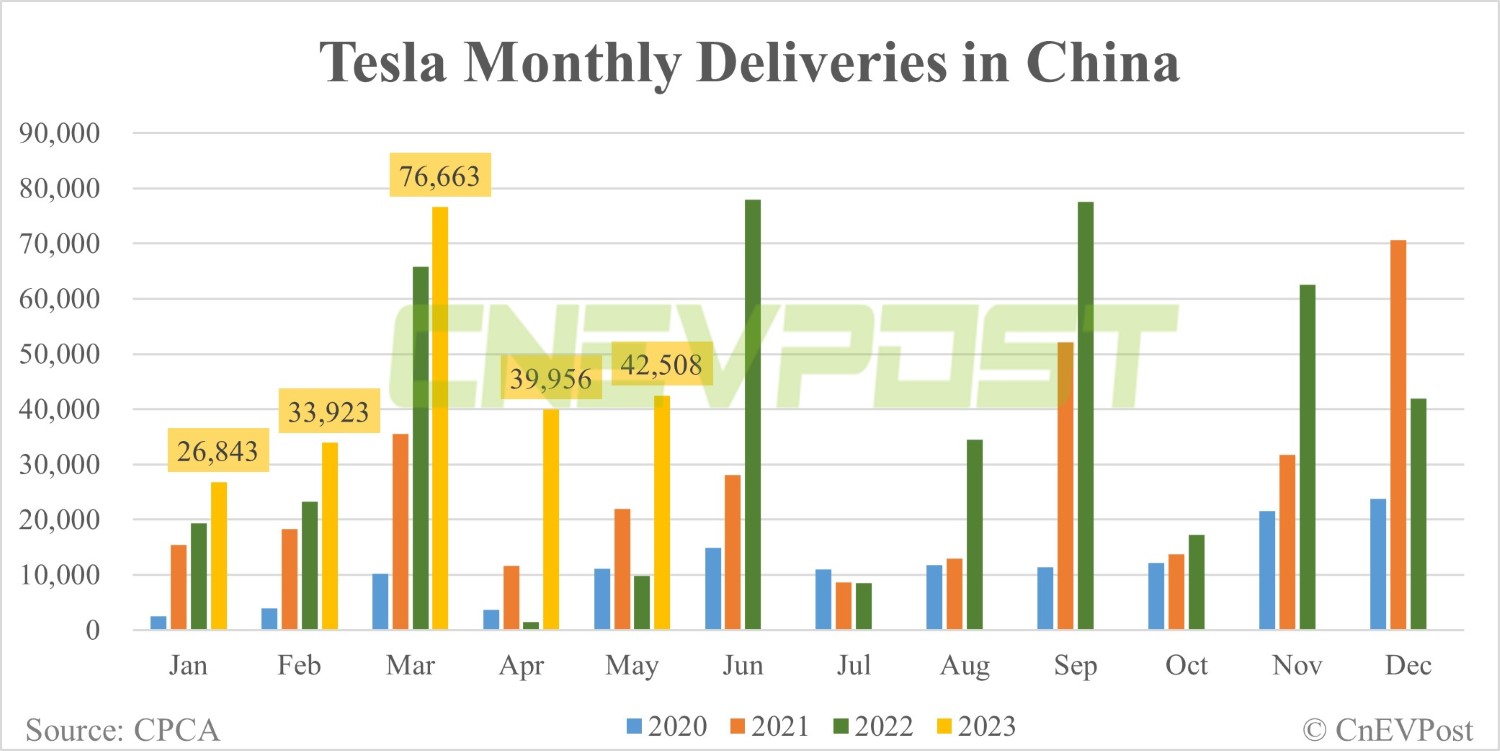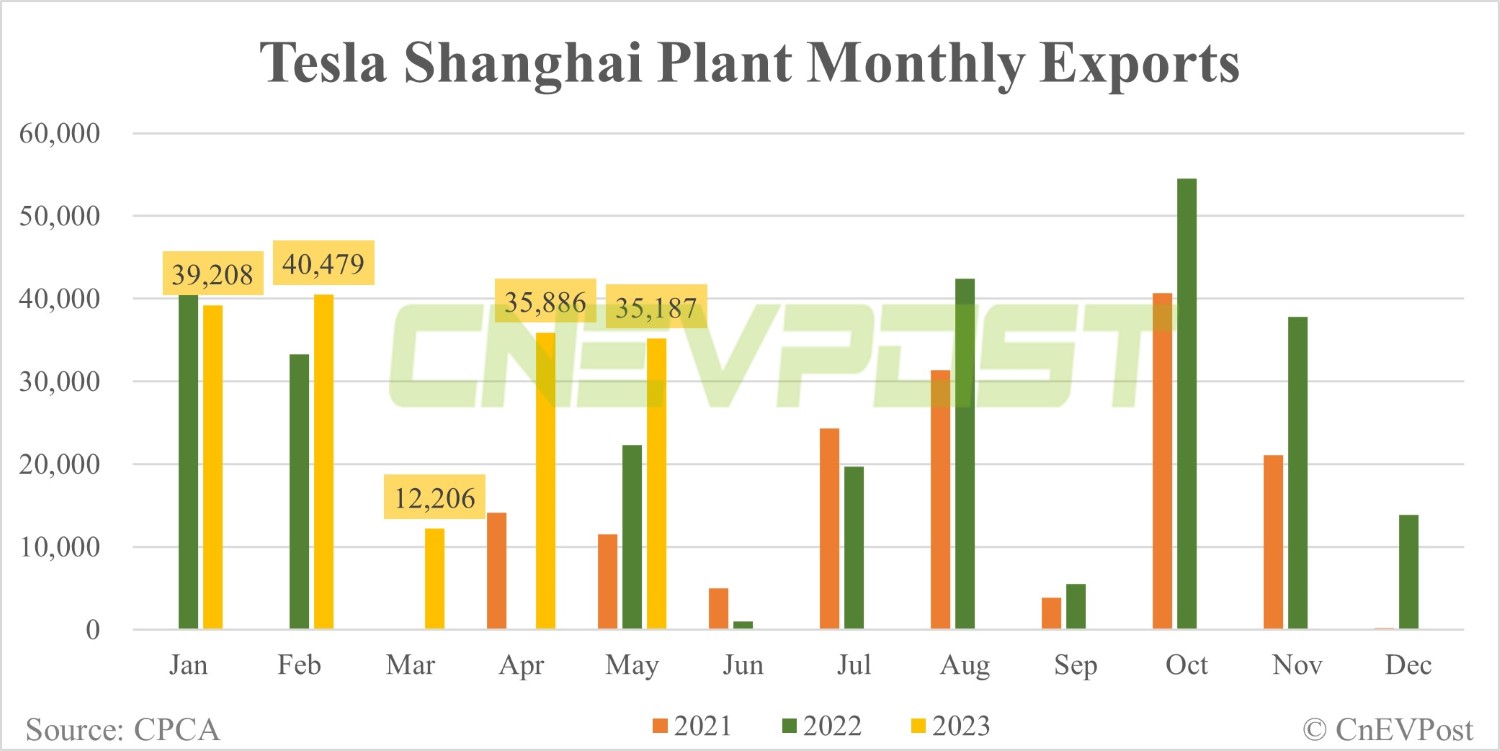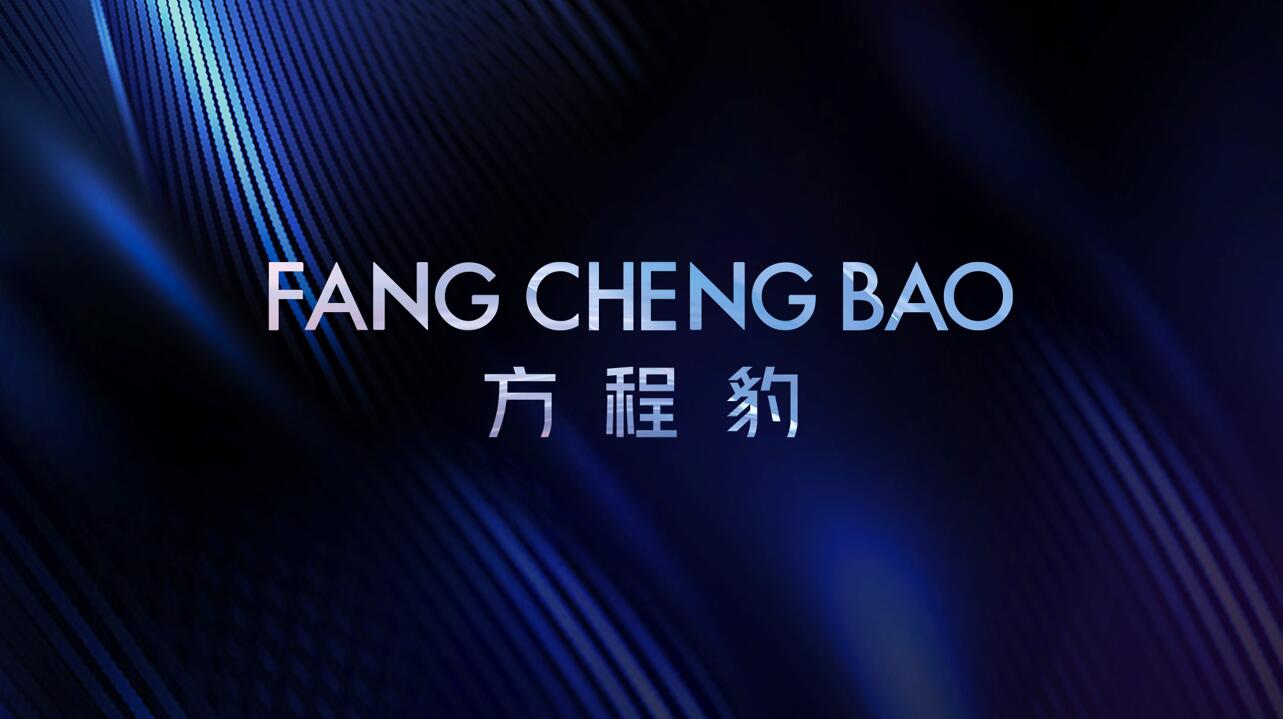Tesla ranked third in the CPCA's NEV retail sales rankings, with BYD and GAC Aion in first and second place with 38.1 percent and 7.8 percent shares, respectively.

Tesla (NASDAQ: TSLA) retail sales in China in May were 42,508 units, ranking third in the country's new energy vehicle (NEV) market with a 7.3 percent share, according to data released by the China Passenger Car Association (CPCA) on June 9.
That's up 332.65 percent from 9,825 units in the same month last year and up 6.39 percent from 39,956 units in April, according to data monitored by CnEVPost.

BYD's retail sales in May were 220,735 units, up 94.0 percent year-on-year, placing it first in the NEV market with a 38.1 percent share, according to the CPCA's ranking.
Tesla has a factory in Shanghai, its largest in the world, producing the Model 3 and Model Y, with an annual capacity of more than 1.1 million units.
Model 3 and Model Y breakdown sales figures in China are not yet available. Tesla's pattern is to produce vehicles in the first half of each quarter primarily for export and in the second half for the local market.
China's new energy passenger vehicle retail sales in May were 580,000 units, including 388,000 battery electric vehicles (BEVs) and 192,000 plug-in hybrids (PHEVs), data released by the CPCA on June 8 showed.
This means that Tesla's share of the BEV market in China was 10.96 percent in May, slightly higher than April's 10.8 percent. It had a slightly lower share of the NEV market in May than the 7.58 percent it had in April.

Tesla's Shanghai plant exported 35,187 vehicles in May, considering the CPCA said on June 5 that Tesla sold 77,695 China-made vehicles in May.
That export figure was up 57.51 percent year-on-year but down 1.95 percent from April, CnEVPost's calculations show.

In the ranking released yesterday by the CPCA, GAC Aion came in second with a 7.8 percent share of May retail sales at 45,003 units, up 113.7 percent year-on-year.
SAIC-GM-Wuling ranked fourth with a 6.3 percent share of May retail sales, up 13.7 percent to 36,253 units.
Li Auto ranked fifth with a 4.9 percent share of May retail sales, up 146.0 percent to 28,277 units.
Geely ranked sixth with a 4.4 percent share, Changan Auto ranked seventh with a 4.2 percent share, Great Wall Motor ranked eighth with a 3.6 percent share, Leapmotor ranked ninth with a 2.1 percent share and Neta Auto ranked 10th with a 1.9 percent share.
The post Tesla delivers 42,508 vehicles in China in May, taking 7.3% share of NEV market appeared first on CnEVPost.
For more articles, please visit CnEVPost.
































